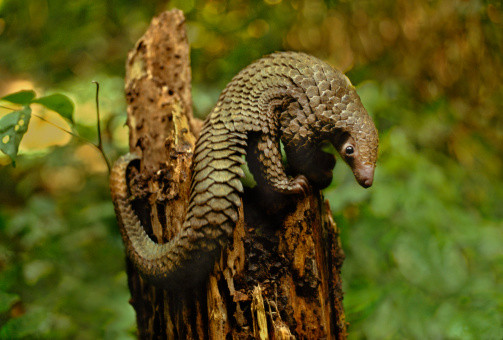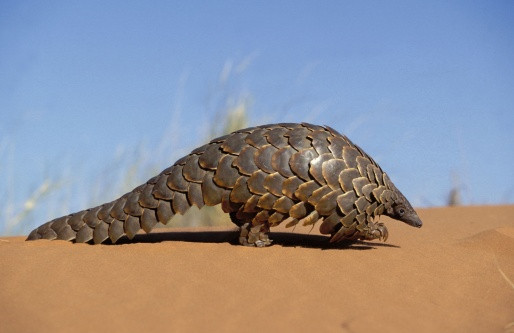Record seizure of pangolin scales in China confirms status as 'most trafficked mammal in the world'
China has seized 3,000kg of pangolin scales in what is possibly the largest smuggling case involving pangolins.
China's authorities have seized more than 3,000kg of pangolin scales in Shanghai, in what is seen as the largest smuggling case involving the little animal. Some 5,000 to 7,500 pangolins may have been killed to yield this huge amount of scales.
Pangolins are often described as the world's most trafficked mammal, as intense hunting and trade of their parts pushes the animals to the brink of extinction.
Recognising its vulnerable status, delegates at the recent CITES conference – the biggest worldwide convention on the wildlife trade – have voted to heavily restrict trade in the animal. There are eight species of pangolin and all have since then been added to CITES appendix 1, offering them an extra degree of protection and permitting their trade only in exceptional circumstances.
However, as the recent seizure in China suggests, there is still much to do to help pangolins and to fight trafficking.
Why pangolins are trafficked
Pangolins are burrowing mammals covered in tough, overlapping scales. When they feel threatened, they are known to quickly roll themselves up into a tight ball - their name in fact comes from the Malay word 'penggulung' which means 'something that rolls up'.
The eight species of pangolins are found in southern Asia and Sub-Saharan Africa. Their diet consists of ants and termites which they eat using a very long and sticky tongue.

Pangolins' survival has been a concern for wildlife charities in recent years as rising numbers have been poached and illegally traded. In a recent study published in Conservation Letters, scientists have indicated that more than 21,000kg of scales and 23,109 pangolins were trafficked, in a total of 206 seizure reports between January 2008 and March 2016. This means that nearly 66,000 have been killed in that time period.
In Africa many pangolins have been hunted for bushmeat and used in traditional African medicine. In Asia, particularly in China and Vietnam, the meat is also consumed as a delicacy, and eating it is believed to provide health benefits such as nourishing the kidneys. Pangolin scales are also used as ingredient in traditional Asian medicine to help women to lactate when they are breastfeeding or to cure illnesses, ranging from cancer to psoriasis.

Due to the high Asian demand, African pangolins are increasingly sold on the Asian market - in the case of the recent seizure in China, the scales had been packed in bags concealed in a timber consignment imported from Africa.
Despite the international community's willingness to protect pangolins, the situation will probably not change without robust efforts on the part of China and Vietnam to implement the law and make sure traffickers are brought to justice.
© Copyright IBTimes 2025. All rights reserved.






















